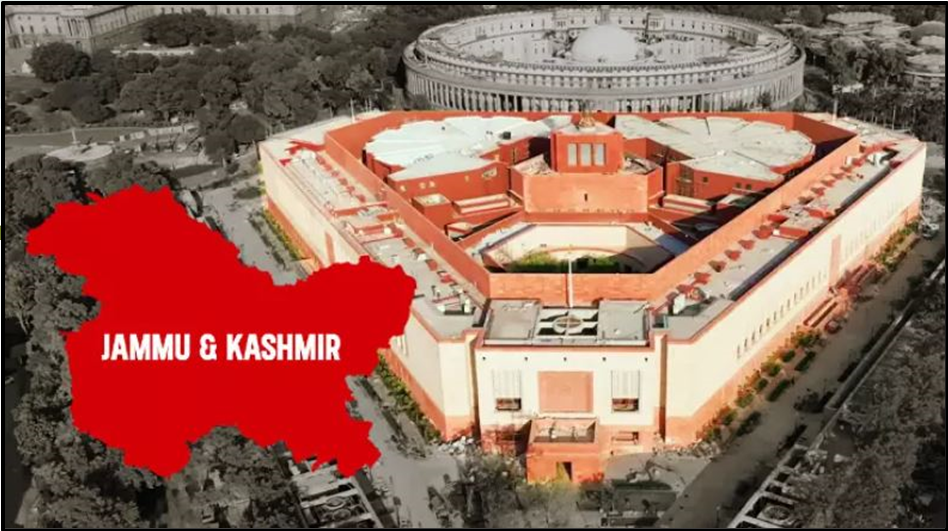Jammu and Kashmir Reservation & Reorganisation (Amendment) Bills
News:
- The Jammu and Kashmir Reorganization (Amendment) Bill, 2023 and the Jammu and Kashmir Reservation (Amendment) Bill, 2023 have been approved by the Lok Sabha.
About the amendments:
- The Jammu and Kashmir Reservation Act, 2004, is amended by the J&K Reservation (Amendment) Bill to provide reservations for members of Scheduled Castes, Scheduled Tribes, and other socially and educationally disadvantaged groups in professional institutions and for employment.
- The J&K Reorganisation (Amendment) Bill, on the other hand, modifies the Jammu and Kashmir Reorganisation Act, 2019, which changed the Second Schedule of the 1950 Act to state that there will be 83 seats in the Jammu and Kashmir Legislative Assembly overall.
- The Bill raises the total to ninety seats. The bill reserves nine seats for Scheduled Tribes and seven seats for Scheduled Castes, according to Home Minister response to the bill’s debate.
- The Bill further states that the Lieutenant Governor may designate to the Legislative Assembly a maximum of two individuals who are migrants from the Kashmiri community. According to Mr. Shah, the Bills seek to provide justice to those who have been disregarded for the previous 70 years.
| About J&K History
● The Rajatarangini, written by Kalhana, was the first official document pertaining to Kashmir. Before independence, Kashmir had been ruled by Muslims and Hindus alternately. Even Sikhs ruled this region under Ranjit Singh’s reign. ● Gulab Singh ascended to the throne in 1822. Gulab Singh passed away in 1857, bringing Ranbir Singh to prominence. ● In 1925, Hari Singh became the head of state. At the time of the treaty’s signing with India, he was the king of Kashmir. ● Under the terms of the Indian Independence Act’s Partition Plan, Jammu and Kashmir was one of the 565 princely states of India whose British paramountcy ended at midnight on August 15, 1947. ● The “Instrument of Accession” of the state of J&K was signed by Maharaja Hari Singh in Jammu on October 26, 1947, after he had fled from Srinagar. ● Jammu and Kashmir was granted a special position within the Indian Constitutional framework when the prime ministers of India and Jammu and Kashmir signed the Delhi Agreement in 1952. ● The J&K Constituent Assembly approved the state’s admission to the Union of India on February 6, 1954. ● The Union Constitution was then extended to the state by the President’s constitution order, which was issued in accordance with Article 370 of the Constitution. |




